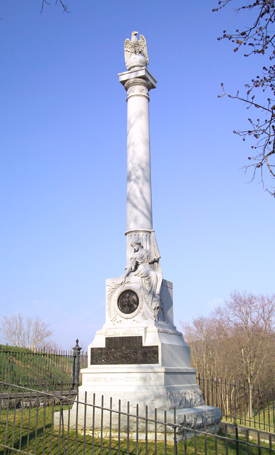I can remember going to work in a little quonset hut on the flightline in Korea 45 years ago. Since I was the lowest man on the totem pole it was my job to turn on the heat and to make the coffee in a big ole 100 cup perculator. I caught hell if the coffee was not ready by the time the captain walked in the door. I can still see him raising hell if I told him it had 5 more minutes to brew.
1 posted on
07/12/2014 6:45:01 AM PDT by
NKP_Vet
To: NKP_Vet
I always thought it was corn liquor.
2 posted on
07/12/2014 6:55:43 AM PDT by
RC one
(Militarized law enforcement is just a nice way of saying martial law enforcement.)
To: NKP_Vet
“I can remember going to work in a little quonset hut on the flightline in Korea 45 years ago. Since I was the lowest man on the totem pole it was my job to turn on the heat and to make the coffee in a big ole 100 cup perculator. I caught hell if the coffee was not ready by the time the captain walked in the door. I can still see him raising hell if I told him it had 5 more minutes to brew.”
Crew Chiefs live off of coffee, even the ones who have converted to energy drinks. On my first trip to Afghanistan we managed to score a Kureg and had several people donate k-cups to us. Something I believe is worth a try, break up and dissolve some Lemon Head candies into a cup of black coffee. Yum.
To: NKP_Vet
Great story - well worth reading at the link.
To: NKP_Vet
To: NKP_Vet; rockrr
Germany in WWI:
Coffee imports had became impossible by 1916. The scant stores on hand had been stretched and extenuated by the use of chicory and other supplements. A transition from coffee to coffee substitute began. The first substitute, Kaffee-ersatz, was not a bad one. It was mostly made of roasted barley and oats and the flavor was enhanced by chemicals from coal-tar. The brew had a good percentage of nutritive elements, no caffeine and was quite palatable when taken with milk and sugar--without sugar though, it was impossible. But the grain could be put to better purpose and so this led to the introduction of the substitute of a substitute. Kaffee-ersatz-ersatz was made of roasted acorns and beechnuts, with just enough roasted barley to build up a coffee flavor. It was said to be better than the first substitute but was also more expensive. Unfortunately, there weren?t enough acorns and beechnuts, much of which was being fed to pigs. Before long the excellent acorn-beechnut coffee disappeared to be replaced by a third substitute whose original ingredients were carrots and yellow turnips. A substitute for tea was not difficult. The bloom of the linden tree mixed with beech buds and a few tips of pine made an excellent "oolong." A cocoa substitute came from coal-tar and chemistry along with roasted peas and oats. Source
17 posted on
07/12/2014 11:15:07 AM PDT by
x
To: NKP_Vet
Coffee was the impetus behind the whole scientific & intellectual revolutions of the past 3 centuries. The coffeehouses were powerhouses where ideas were exchanged by caffeinated men.
(I love the stuff — can’t start my day without it.)
31 posted on
07/13/2014 12:19:01 AM PDT by
MoochPooch
(I'm a compassionate cynic.)
To: NKP_Vet; SunkenCiv
The William McKinley Monument at Anteitam:

The inscription reads: "Sergeant McKinley Co. E. 23rd Ohio Vol. Infantry, while in charge of the Commissary Department, on the afternoon of the day of the battle of Antietam, September 17, 1862, personally and without orders served "hot coffee" and "warm food" to every man in the Regiment, on this spot and in doing so had to pass under fire."
Since this was the bloodiest day in American military history, it was quite something for a man safely in the trains to go up to the fighting on his own initiative. He didn't get a medal, but did get a battlefield commission.
FreeRepublic.com is powered by software copyright 2000-2008 John Robinson
